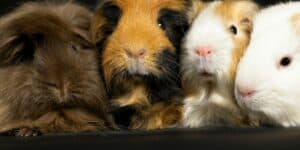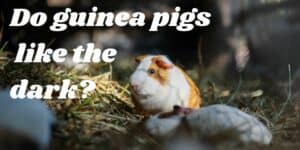Why would anyone even think that celery could be harmful to their Guinea Pig?
Well, not all vegetables and fruits are safe for you Piggy.
Usually, it’s the quantity that makes the fruit or veg harmful. Not so much the item itself.
Feeding celery to your guinea pigs is usually safe and good. It comprises an ample amount of other minerals and vitamins that help improve their health. However, Veterinarians recommend feeding celery on an occasional basis because of oxalates of which celery contains a lot.
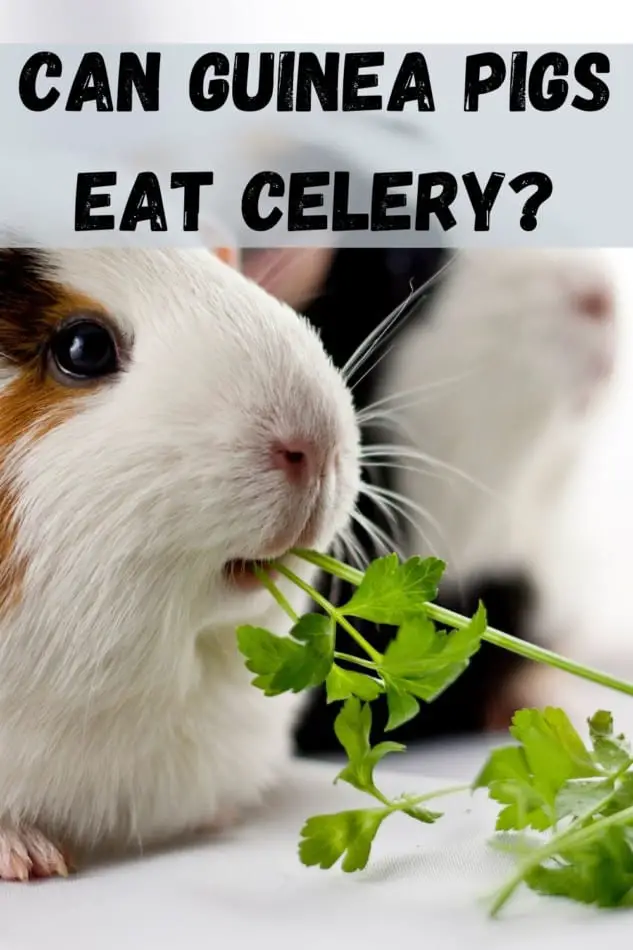
Table of Contents
What do guinea pigs need for their diet?
Our lovely little friends are herbivores, which means their diet is plant-based.
While their diet mainly composes of unlimited amounts of hay, it’s vital also to provide foods rich in vitamin C in their diet.
Unlike many other animals, guinea pigs don’t synthesize vitamin C in their own body, which is essential for their normal development and maintenance of skin and immunity.
In addition, due to its water-soluble nature, vitamin C can’t be stored.
Health problems due to its deficiency such as bleeding gums, poor tooth development, and poor immunity, are the last things a guinea pig lover wants to see. Meanwhile, usually, fresh foods are rich in vitamin C.
Therefore, supplementing their diet with fresh foods is vital. These supplementary foods can be colored or leafy greens vegetables, including celery.
7 Best Indoor Guinea Pig Cage Review here!
What is inside celery? Is it safe for guinea pigs?
Feeding celery to your guinea pigs is usually safe and good. It comprises an ample amount of other minerals and vitamins that help improve their health.
In fact, many guinea pig lovers like to share celery with their lovely ones occasionally because of health benefits. Added in a small amount to their diet, fresh celery is not only a safe food but also a healthy one.
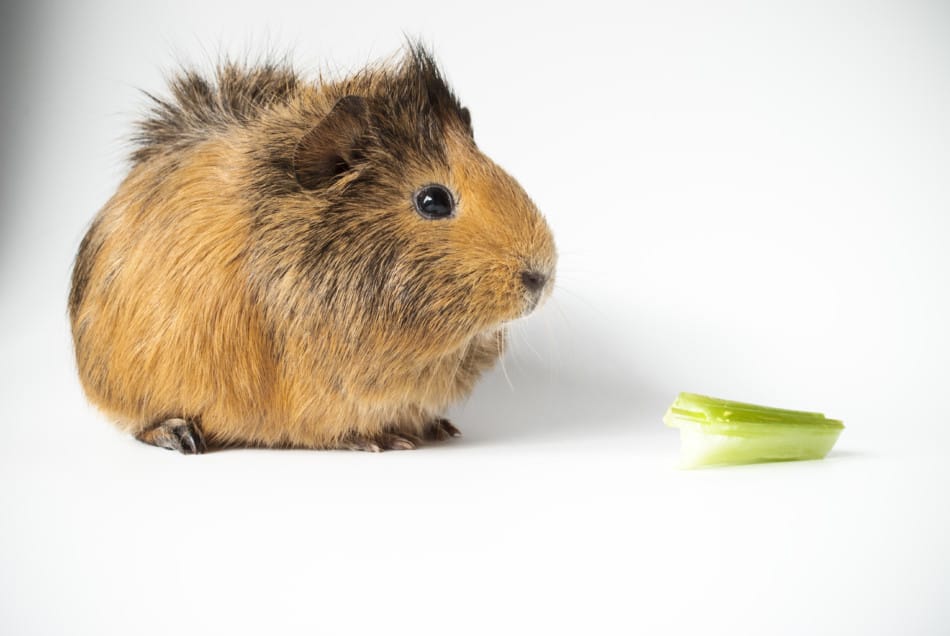
However, the key is to include a small amount only. Veterinarians recommend feeding celery on an occasional basis because of oxalates of which celery contains a lot.
Oxalates can be harmful to their health. This potential risk is not limited to celery, a high dose of the chemical can also be found in other vegetables such as spinach, chard, and green beans.
Oxalates
Research has shown that calcium and oxalates are the major risk factors for stone formation in their urinary tract, which can be very painful and lead to inappetence and reduced activity.
Luckily, if celery is consumed occasionally in a limited amount, it will be fine and unlikely to cause excess oxalate levels.
Therefore, feeding a limited amount of celery is safe for guinea pigs.
However, if your guinea pig has already had bladder or kidney problems, it will be a wise idea not to treat them celery for the fear that the issue may be exacerbated.
Is it good for guinea pigs to eat celery?
In fact, overconsuming celery may be risky for guinea pigs. However, the right portion will bring more benefits to them, outweighing the potential harms.
What benefits can celery bring for Guinea pigs?
The most important benefit is supplementing vitamin C. Celery also helps in other areas of your guinea pig’s health.
Similar to vitamin C, celery contains a lot of water-soluble vitamins such as B complex.
They are essential for their overall health, especially improving the health of gastrointestinal tract and the prevention of anemia.
Celery is also rich in fat-soluble vitamins including A, D, E, K.
All this helps guinea pigs improve their eyesight, maintain their growth and muscle strength, and slow the degeneration process.
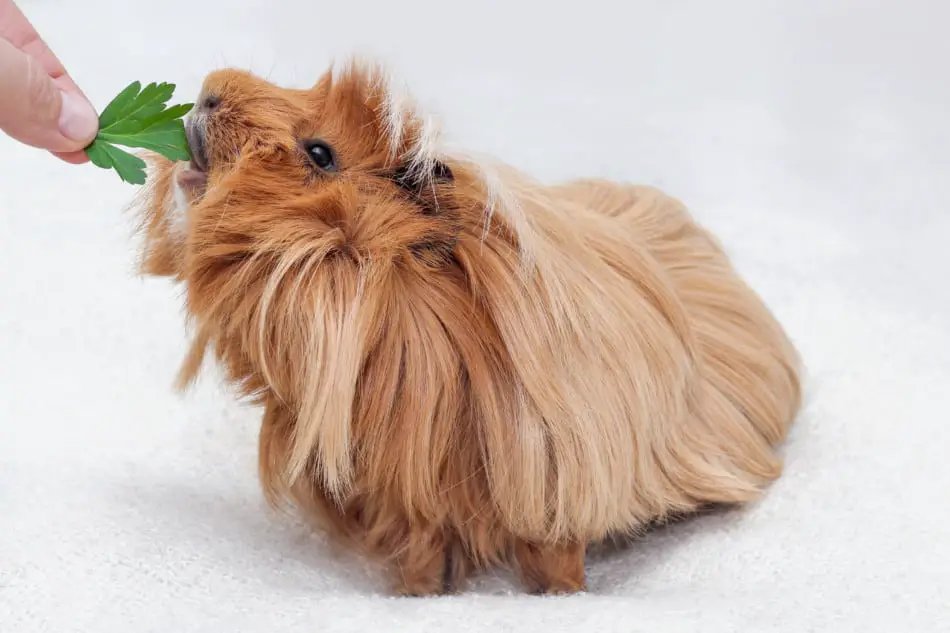
What are the risks of feeding celery for Guinea pigs?
The major concern is from oxalates.
However, you should also take note that celery contains a certain amount of calcium that may lead to potential urinary problems.
Furthermore, celery is rich in sodium content that puts a burden on their health. Again, the dosage is the key. Serving in small quantities occasionally will be fine.
Are celery stems and leaves both good for my guinea pigs?
Compared with other parts, celery leaves contain more micronutrients including vitamins, calcium, and oxalic acid. Overfeeding of it can aggregate the potential harms to guinea pigs.
Meanwhile, stems are rough and having a harder texture that is good for their teeth, which are evergrowing.
Since different parts of celery have different nutritional values, mixing them and feeding in small quantities can bring a balanced diet for your lovely ones.
Can I feed celery to my guinea pigs? Do they like it?
Weighing the benefits and potential harms of feeding celery, you can comfortably feed celery for your guinea pigs occasionally, like once to twice per week.
Feeding more is not a good decision.
However, just like our foods, before feeding celery, we have to wash it properly and throughout to remove dirt and chemicals. After all, food safety is a major concern for us as well as our lovely ones.
Guinea pigs are fond of leafy greens. Celery, especially the leaves, is certainly their cup of tea. Unlike hay, celery is fresh and hydrating. Your guinea pigs will definitely love it.
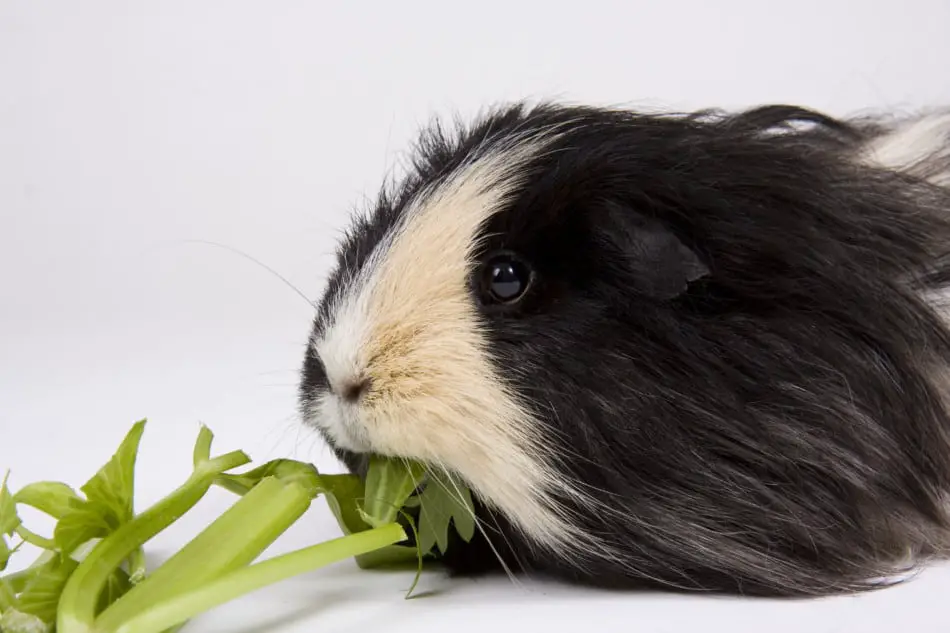
How to choose between raw celery and cooked celery?
They love to nibble fresh leaves and actually their natural habitat doesn’t provide cooked food for them. Raw ones are much harder that can protect their teeth and oral health.
Furthermore, chemicals added during cooking that are safe for you doesn’t apply the same for your guinea pigs.
Even though no additional ingredients are added during cooking, the cooking process will take away many nutrients, especially water-soluble ones.
It’s not a good decision to spend extra effort on preparing their foods given that raw celery may benefit your pets more.
Conclusion: Can Guinea Pigs eat Celery?
It’s our common desire that our adorable guinea pigs grow healthily.
To do so, bringing a balanced diet to them by feeding a limited of celery occasionally will be a good choice in general.
Meanwhile, we should remember the staple part of their diet is hay.
Vegetables including celery should only be positioned as a supplement served in limited quantities. By bearing this in mind, our guinea pigs can grow and stay healthy.




